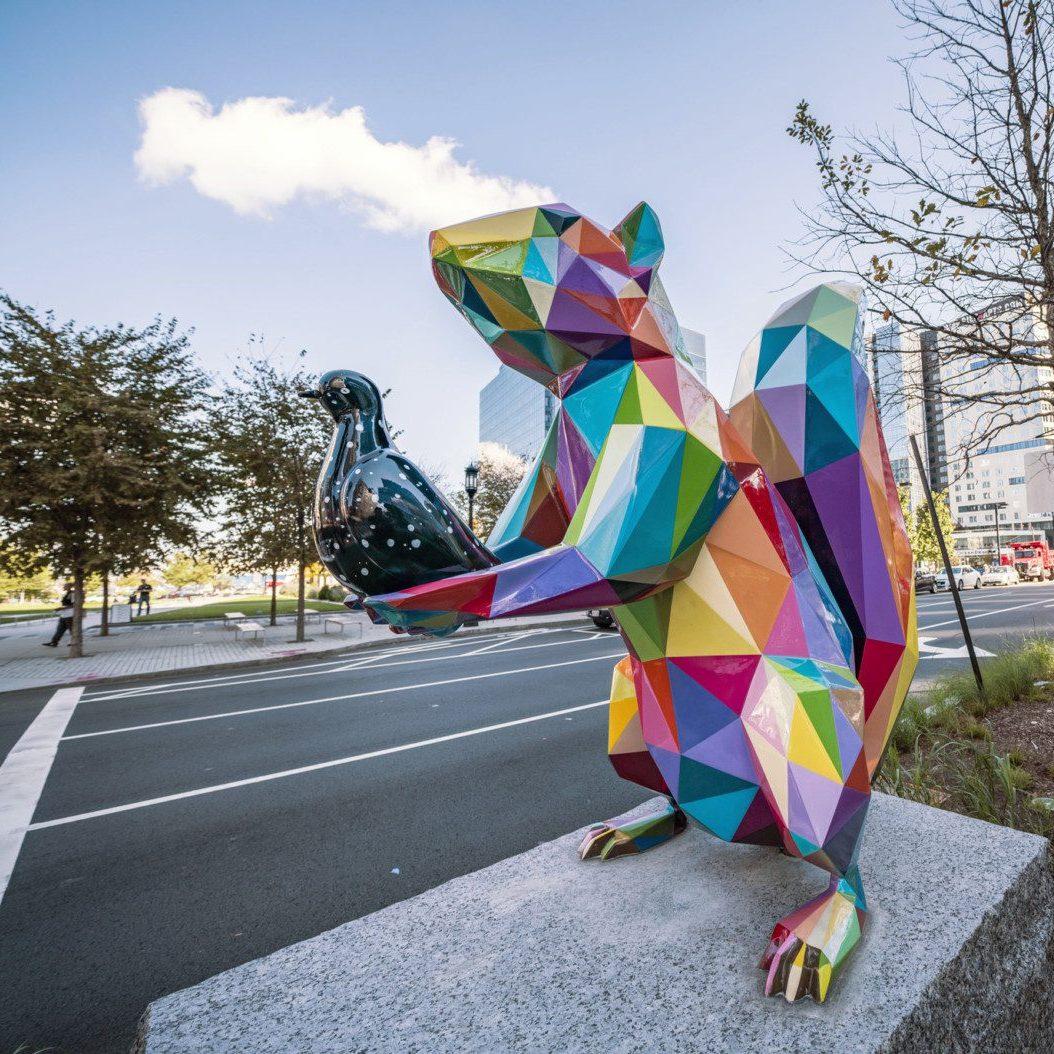Nilote or Nilotic people is a group of tribes which originate from valleys of Nile.
Many Nilotic tribes have overcome huge distances, moving from place to place. All Nilotes have some common features: they mostly are cattlemen, they are tall and thin. But for me, the most valuable is their richest culture of ceremonies and traditions.

HOW A CAT SETTLED IN THE KITCHEN
There lived a cat, small, but very reasonable creature; the reason has prompted it to make friends with the strongest animal, to be in safety. So it approached to the king of animals – to a lion and told: «Let us be friends, your prey is my prey, my hunting is your hunting». The lion, certainly, agreed as the cat was so courageous. They were friends for long and were together all the time, but once when they slept, the elephant stepped on a lion and crushed it. The cat thought: «this animal is stronger than a lion» and made friends with the elephant, but their friendship was absolutely short, the African hunter came and killed the elephant, loaded him on the wheeled cart and carried at home. «Well, how strong is this animal!» the cat decided and ran after the hunter. And the hunter came home where it was waited by the young wife, he gave her the prey and the weapon, and himself went to have a rest. «Well!» – the cat was surprised, – «And how strong is this animal if the one who is stronger than the elephant, gives her the prey!» The woman liked tender purring and soft fur of cats, which it rubbed about her legs and she let the cat live in the house. And so the cat is living nearby women and close to the kitchen. The composition of a picture is sustained in the plastics inherent to the sculpture of ebony carvers from the tribe Makonde. The pose of the woman symbolizes the force consisting in flexibility and tenderness, the moon – a traditional symbol of the female beginning, balances on her foot toes, helping to keep balance in any stress,and the bow hanging on the other foot means ability to disarm men in the most unexpected ways.
 Madonna Turkana
Madonna Turkana
Tribe Тurkana, one of the most exotic Nilotic tribes – cattlemen, lives in Kenya mainly in area of lake Rudolf. In they way of life there is much in common with Karamojа, Massais Samburus, Pokot and others Nilotes. Certainly, there are also differences. Turkana women must not touch water, except for drink and cooking. For Turkanees, in general there is no tradition of washing, so turkana washes two times in life: first time when is born and for the second when dies. Generally they have a hygiene, just totally different from what we used to. Instead of washing they are rubbing themselves with clay or with dust, depending on what is available. Women of a tribe wear leather or woven apron on which it is possible to read, from what village and what family she is, how many children she has, biys or girls. Men prefer to go naked as the real man has nothing to hide.
Тurkana women are the most gentle mothers, they carry on themselves children up to 3 years of age, and in conditions of the African heat when a column of the thermometer rise above forty degrees Celsius, it is really hard. But on the ground, there are various beings, and Turkana child will know what is dangerous and what is in opposite tasty only by the age of 3, when they in general could defend themselves and even catch something for the lunch. Fashionable Turkana do complex hairdresses equipped with various beads and some amusing accessoir. It should be not handmade and the more it looks strange the more she is proud with it. It could be an objective of the camera lost by someone from tourists, leather tag from jeans or simply a tin from under a tuna with an inscription «Made in Kenya»!

Chepopkoi was a storyteller from small tribe of Pokot (Kenya) related to Nilotic tribes. Pokot live in full isolation on the top of small but hard-to-reach mountain. Ancestors of Pokots travelled for long distance from middle part of Nile and the information about this was contained in the stories which were narrated by Chepopkoi who thanks to her phenomenal memory remembered more than three thousands of them.

Lentatuk was a real person, the chief of Samburu tribe of Nilotic group. He concluded the agreement with Kenyan government for establishment of the “touristic” villages with samburus smiling in front of photocameras for the money
In tribe Samburu, they prepare excellent beer and alcoholic drink from honey. Мassai are not a great admirers of “green snake” and drink mainly on holidays, but the daughter of the chief has a miserable fortune… She is not allowed to become the girlfriend of a young моran and to live cheerfully with the fellows in manyata. The parents wants marry her to the honored person – the elder, captured a lot of cattle, having many children from temporary girlfriends (children are an essential workforce at Masais), the hero covered by scars from lion’s claws. But fifteen years old belle consider all of these advantages as terrible flaws, and 35-years old groom as an old man. So she covers her sadness with unusual wine.
In the title the phrase from the novel of English writer Evelyn Waugh «Brideshead Revisited» is used. The young man from society, actually drinking on a regular basis, once has appeared drunk in public. Next day all newspapers wrote: «the young son of lord isn’t got used to wine … ».

Masais and Samburu are the cattle breeding tribes with very interesting traditions in every area of life including food. Boys and girls in these tribes are feed differently starting from age of 3 years. Boys receive food with more protein, and they consume fresh blood mixed with milk. Incising jugular vein of goat or cow, they drain required amount of blood, then apply to the wound the juice of herb which stops the blood. Masai’s warriors – morans – also drink blood, but the drawing is about another tradition. Customary, woman could propose this ritual drink to her husband… or to somebody else she likes. Adultery is very common and even fostered at Masais. Man comes to the husband of the woman he likes and sticks new spear in the middle of the hut. The husband usually accepts the spear and that mean that his wife is allowed to live temporarily with this man. Masais have saying: “married not in vain as other like my wife”. At the graphics married couple is not looking at each other anymore, man thinks whether the neighbor will like his new spear, and his wife while offering him the drink is calling somebady else with her hand
Langichore is a warrior (moran) from Masai tribe. He has just chosen a girl which he likes to go with him live in Manyata – the village of warriors. But he is sad because the mother of the girl does not want her daughter to go to Manyata and set the toll in amount of whole herd of cattle. Langichore is consulting his true friend, the spear, where he could capture the herd, as the Masais believe that the God gave them all the cattle in the World and all what they need to do is take it.
http://lolalonli.com/Graphics/heart_of_africa/Legends_of_Lilota.html







